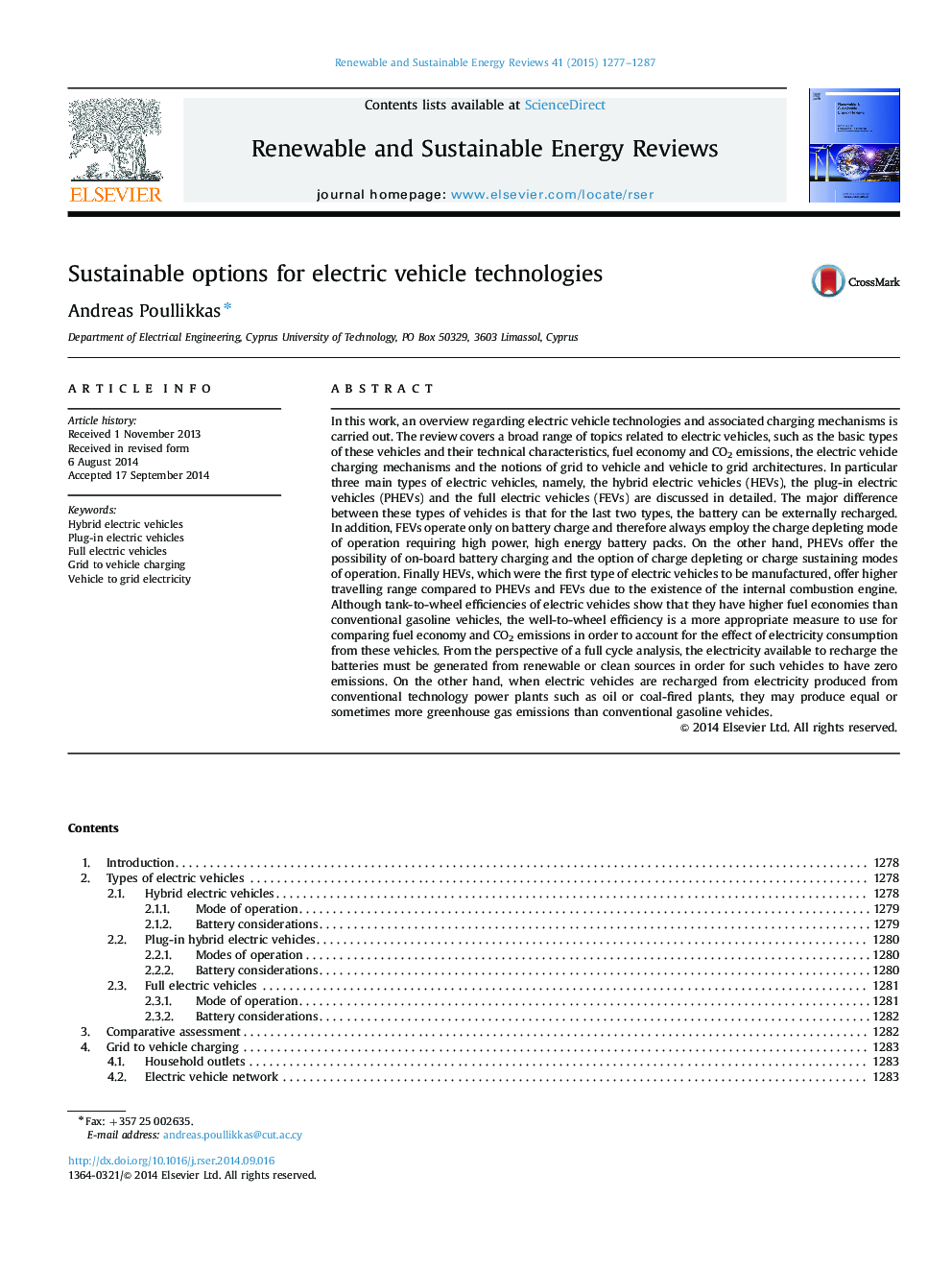| کد مقاله | کد نشریه | سال انتشار | مقاله انگلیسی | نسخه تمام متن |
|---|---|---|---|---|
| 8118799 | 1522344 | 2015 | 11 صفحه PDF | دانلود رایگان |
عنوان انگلیسی مقاله ISI
Sustainable options for electric vehicle technologies
ترجمه فارسی عنوان
گزینه های پایدار برای فن آوری وسایل نقلیه الکتریکی
دانلود مقاله + سفارش ترجمه
دانلود مقاله ISI انگلیسی
رایگان برای ایرانیان
کلمات کلیدی
وسایل نقلیه هیبریدی، خودروهای الکتریکی پلاگین وسایل نقلیه کامل، شبکه برای شارژ خودرو خودرو به شبکه برق،
موضوعات مرتبط
مهندسی و علوم پایه
مهندسی انرژی
انرژی های تجدید پذیر، توسعه پایدار و محیط زیست
چکیده انگلیسی
In this work, an overview regarding electric vehicle technologies and associated charging mechanisms is carried out. The review covers a broad range of topics related to electric vehicles, such as the basic types of these vehicles and their technical characteristics, fuel economy and CO2 emissions, the electric vehicle charging mechanisms and the notions of grid to vehicle and vehicle to grid architectures. In particular three main types of electric vehicles, namely, the hybrid electric vehicles (HEVs), the plug-in electric vehicles (PHEVs) and the full electric vehicles (FEVs) are discussed in detailed. The major difference between these types of vehicles is that for the last two types, the battery can be externally recharged. In addition, FEVs operate only on battery charge and therefore always employ the charge depleting mode of operation requiring high power, high energy battery packs. On the other hand, PHEVs offer the possibility of on-board battery charging and the option of charge depleting or charge sustaining modes of operation. Finally HEVs, which were the first type of electric vehicles to be manufactured, offer higher travelling range compared to PHEVs and FEVs due to the existence of the internal combustion engine. Although tank-to-wheel efficiencies of electric vehicles show that they have higher fuel economies than conventional gasoline vehicles, the well-to-wheel efficiency is a more appropriate measure to use for comparing fuel economy and CO2 emissions in order to account for the effect of electricity consumption from these vehicles. From the perspective of a full cycle analysis, the electricity available to recharge the batteries must be generated from renewable or clean sources in order for such vehicles to have zero emissions. On the other hand, when electric vehicles are recharged from electricity produced from conventional technology power plants such as oil or coal-fired plants, they may produce equal or sometimes more greenhouse gas emissions than conventional gasoline vehicles.
ناشر
Database: Elsevier - ScienceDirect (ساینس دایرکت)
Journal: Renewable and Sustainable Energy Reviews - Volume 41, January 2015, Pages 1277-1287
Journal: Renewable and Sustainable Energy Reviews - Volume 41, January 2015, Pages 1277-1287
نویسندگان
Andreas Poullikkas,
